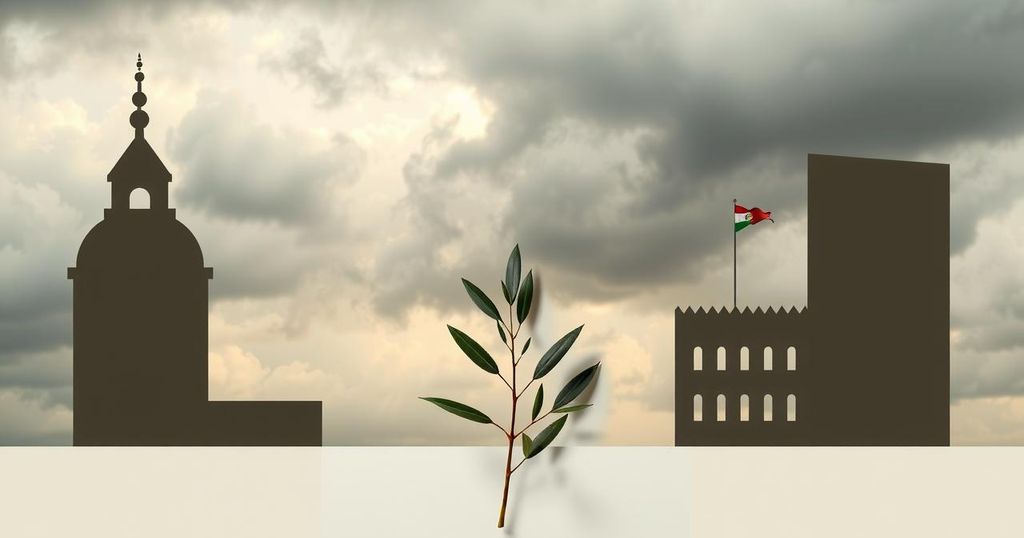President Trump’s proposal for Egypt and Jordan to resettle Palestinian refugees has been met with unwavering resistance from both nations, who fear economic destabilization and political repercussions. While the U.S. maintains a strong alliance with Jordan, the practicality of relocating millions from Gaza is under scrutiny. Furthermore, Trump’s support for Israel continues as tensions in the region persist.
President Donald Trump’s recent proposal to have Egypt and Jordan accept a substantial influx of Palestinian refugees from Gaza has met with strong resistance from both nations. Following a fragile ceasefire after Hamas’s attack on Israel in October 2023, Gaza’s population faces significant hardship, leaving many homeless due to extensive Israeli military actions. Trump indicated that relocating approximately 1.5 million people from Gaza could effectively “clean out that whole thing.”
During a conversation with Jordan’s King Abdullah, Trump expressed his desire for Jordan to accept more refugees and made similar appeals to Egyptian President Abdel Fattah el-Sissi. However, both countries are concerned about the implications of permanently resettling Palestinians, fearing it would prevent their return to Gaza and destabilize their economies.
Jordan’s Foreign Minister Ayman Safadi firmly opposed Trump’s suggestion, while Egypt’s Foreign Minister cautioned that such a transfer of refugees could escalate regional conflicts. Despite Trump’s leverage over Jordan due to U.S. financial assistance, the idea of resettling a large population from Gaza remains contentious.
Even within the U.S., Trump’s proposal has prompted confusion among his allies, including Senator Lindsey Graham, who questioned the practicality of the plan. The senator emphasized the need for further discussions with regional leaders regarding the Palestinian issue.
Moreover, Trump reiterated his support for Israel while announcing military aid, including the release of 2,000-pound bombs intended for Israel’s use, which had encountered delays from the Biden administration due to concerns over civilian casualties in Gaza. Both Egypt and Jordan advocate for a Palestinian state while recognizing the potential ramifications of displacing Gaza’s inhabitants.
Trump characterized Gaza as “literally a demolition site” and expressed a desire to collaborate with Arab nations to develop housing for displaced persons, envisioning a peaceful living arrangement away from the ongoing conflict.
The proposal regarding the relocation of Palestinian refugees arises amidst ongoing violence and humanitarian crises in Gaza following recent escalations between Hamas and Israel. Egypt and Jordan, key Arab allies of the United States, are strategically important yet face their challenges regarding economic stability and maintaining national security amid potential refugee influxes. Both nations have historically supported a two-state solution but are wary of the repercussions that significant Palestinian resettlement could have on their political and social landscapes.
In summary, President Trump’s call for Egypt and Jordan to accept Palestinian refugees from Gaza has been met with significant opposition from both governments. Concerns over economic strain and potential instability remain paramount. The complexities of this situation reflect the delicate nature of regional politics and the challenges posed by ongoing conflicts.
Original Source: www.pbs.org






